In Their Own Voices: The Latest Afghan Diaspora

By Ahmad Fawad Lami
One is a sixth-grader who braved walks through Balkan forests to join his brother in England; another fought the Taliban while serving Afghan forces in Helmand; a third spent years working in Turkey to cover a human smuggler’s fee.
They are Afghanistan’s latest diaspora, refugees of raging war and shrunken economic prospects, swept up in the largest flood of migrants Europe has seen in more than 70 years.
Until their numbers were eclipsed by refugees from the Syrian war last year, Afghanistan had produced more refugees than any other nation thanks to more than three decades of intractable conflict.
While the majority of prior Afghan refugees made new lives in Pakistan and Iran, United Nations data say nearly 80,000 Afghans are now officially seeking asylum in Europe — the highest rate in 20 years.
Their exodus has only increased as a resurgent Taliban wages its bloodiest offensive in 14 years.
Drawn by the promise of a better life, many tapped into their life’s savings and money from family already in Europe to pay smugglers to spirit them across six countries. The less well-off risked the journey alone.
VOA Afghan Service anchor Ahmad Fawad Lami traveled to Hungary and Serbia where he caught up with many Afghan refugees just as Austria briefly opened its border.
These are just a few of their stories.
Jawad Yusufi
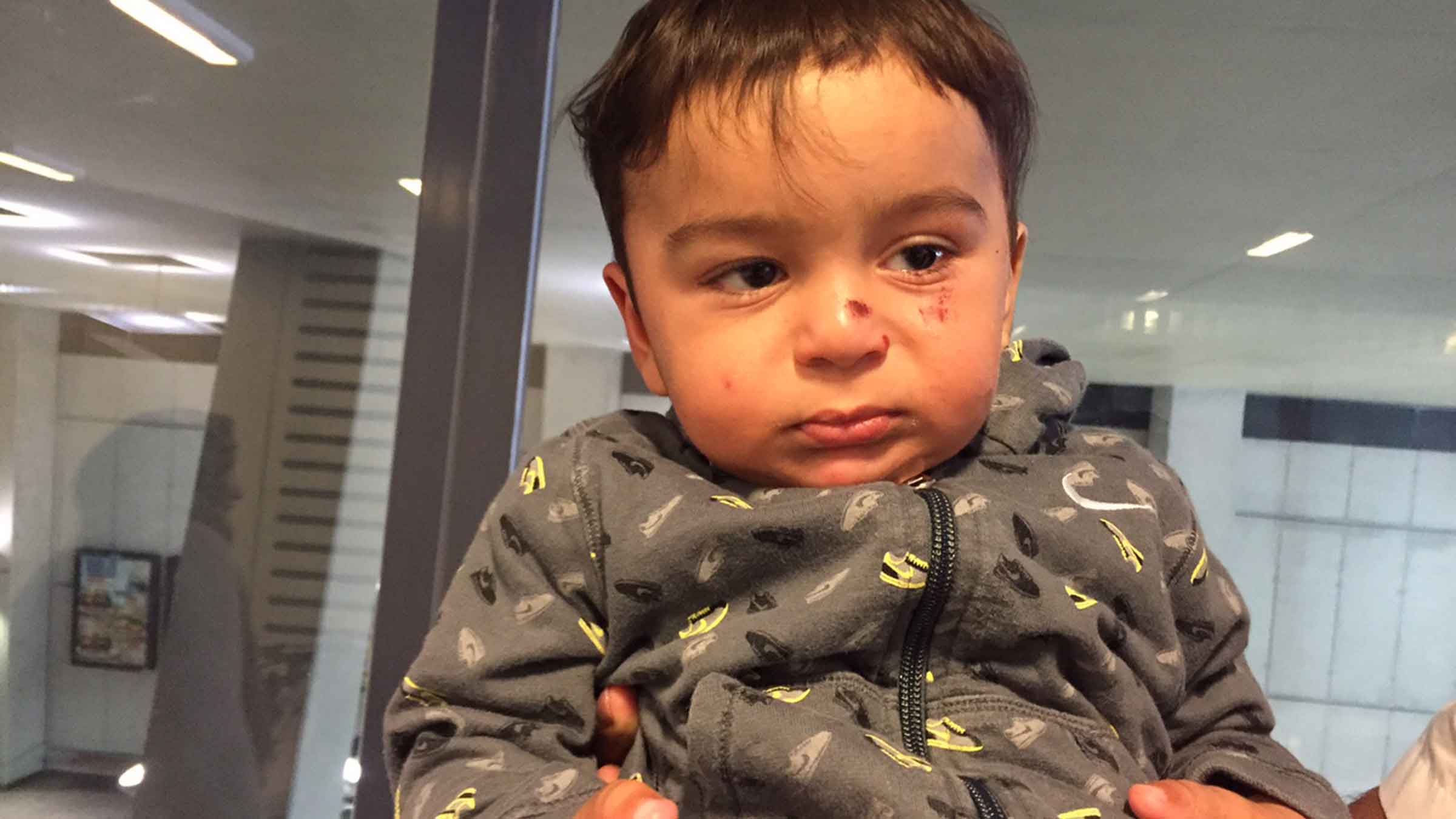
Jawad Yusufi's son, Mahdi photographed at Keleti train station in Budapest. (Ahmad Fawad Lami/VOA)
- Age:
- 30
- Originally from:
- Herat
- Companion:
- Wife, Geeta; son, Mahdi (1); daughter, Mahsaa (7)
- Route:
- Iran → Turkey → Greece → Bulgaria → Serbia → Hungary
- Destination:
- Germany
- Paid Smugglers:
- $4,700
We lived in Iran for 20 years. Life was tough there. I couldn’t get a job. We were treated badly and we couldn’t get residency documents. My parents and siblings live in Germany. I got my wife and children from Iran to Turkey and from there by sea to Greece. There, three months ago, we paid 4,200 euros to a Pakistani couple to smuggle our 10-year-old son into Germany claiming he was their son. Miraaj is now living with my parents in Germany. I didn’t have enough money to send my other kids.
From the Serbian border to Budapest, we had a difficult journey and walked hours through forests. Mahdi and Mahsaa’s faces were scratched and bruised during the trek.
We’re now at Keleti station but don’t want to take the train to Austria, because we don’t want to be fingerprinted there and lose the chance of reuniting with Miraaj in Germany. My wife cries whenever she thinks of him. Afghans are not treated well here and all the focus is on Arabs, especially Syrians.
Dawa Jaan Sahil
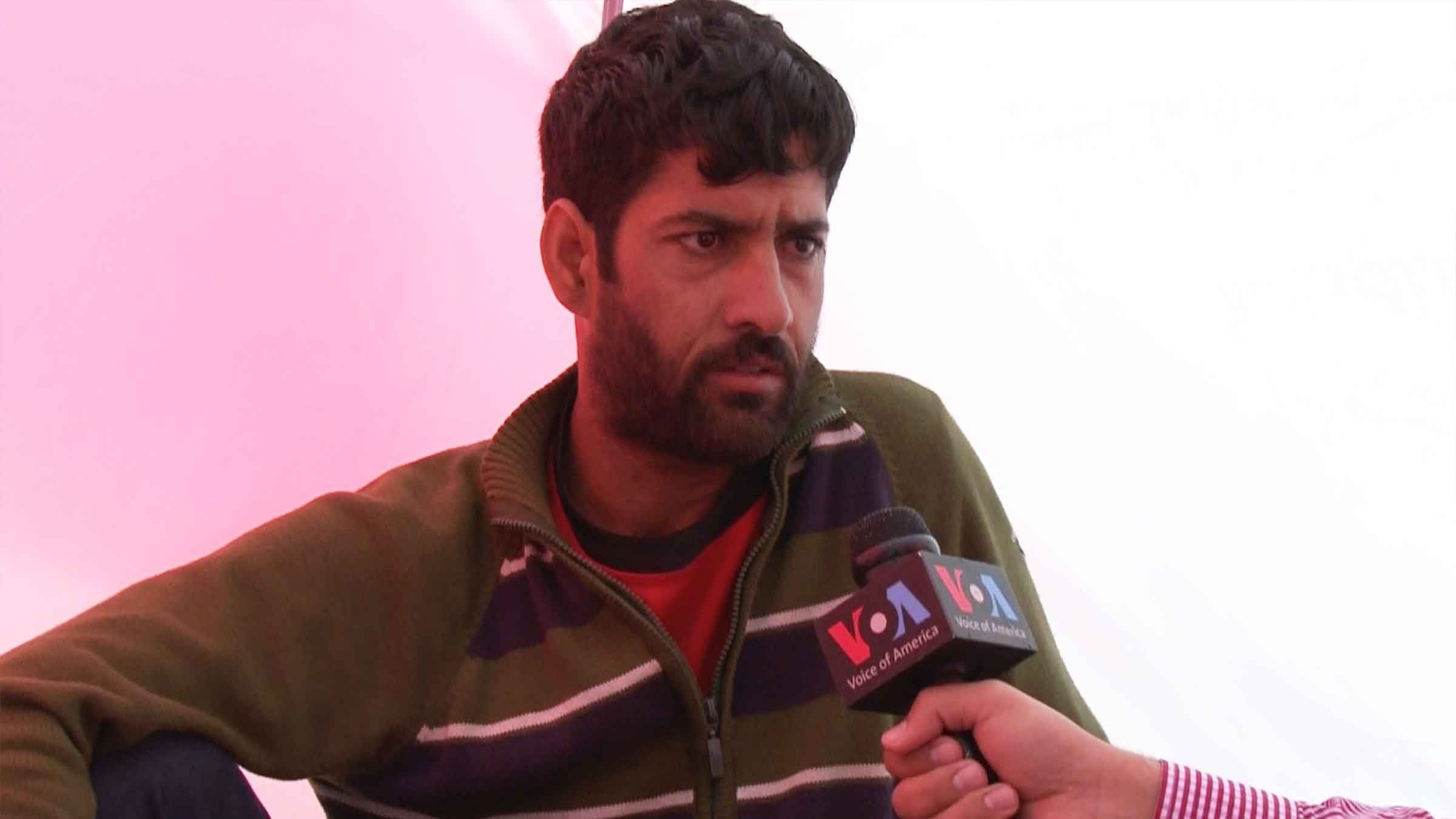
Dawa Jaan Sahil photographed at Roszke near Hungarian-Serbian border. (Ahmad Fawad Lami/VOA)
- Age:
- Unknown
- Originally from:
- Nangarhar
- Companion:
- None
- Route:
- Afghanistan → Iran → Turkey → Bulgaria → Serbia → Hungary
- Destination:
- Belgium
- Paid Smugglers:
- $6,500
I served in [the Afghan National Army’s] Thunder Corps in Helmand for six years. I left my country because I had no choice. The Taliban had come and it was impossible for me to remain in my village. They were threatening [soldiers] that they’d burn our homes, kill our fathers, cut our throats. They were saying that ANA soldiers are infidels. That’s why I left the army and took to the road to Europe. I am married and have a son. Before I left, I sent my wife and son to my in-laws. To pay the smuggler, I used my army salary savings and sold a plot of land I owned in my village.
We crossed into Iran, illegally, then into Turkey. From Turkey we took the Bulgarian route; from Bulgaria we entered Serbia and then here, Hungary. When we entered Bulgaria, there were 70 of us and a smuggler. We spent the night in a forest where a snake bit my foot. That was about 20 days ago. I couldn’t walk. I reached here with the help of my traveling companions, who sometimes carried me on their backs. They helped me a lot.
It is my eighth day in Roszke. I plan to go to Belgium. In Hungary, there are many Syrians, Arabs, Iraqis. The problem is they don’t let Afghans abroad. They have to take us to a camp or to a town or somewhere that we can make a call. All my money is gone. I don’t have money for fare, food, nothing.
Rahmatullah Niazi

Rahmatullah Niazai photographed at Keleti train station. (Ahmad Fawad Lami/VOA)
- Age:
- 13
- Originally from:
- Laghman
- Companion:
- None
- Route:
- Iran → Turkey → Bulgaria → Serbia → Hungary
- Destination:
- England
- Paid Smugglers:
- Unknown
In Laghman, Afghanistan, I was in sixth grade. I didn’t want to leave but the Taliban were bombing the schools and it was difficult to study. There’s no work or money, so I came here to work.
My brother is living in London. He used the same route to get to London several years ago. Now he has legal status there. He sent us money to hire a smuggler. I also spent 50,000 rupees (approximately $480) out of pocket.
It has been two months since I left home. My parents live in Mehtarlam, the capital of Laghman province. Now that I’ve come here, I’m happy and I want to go to school.
When we got to Iran, there was some food but not enough, so we drank water instead of eating food. During our journey, when we were in the forest, we slept there. When we were in the mountains, we slept there. I didn’t know the smuggler but my father spoke with him. The smugglers changed along the way.
I’m waiting for a friend. Once he gets here, we’ll leave. We’re going to Austria and from Austria to Italy and then London. I want to go to London.
Mohammad Rezayee
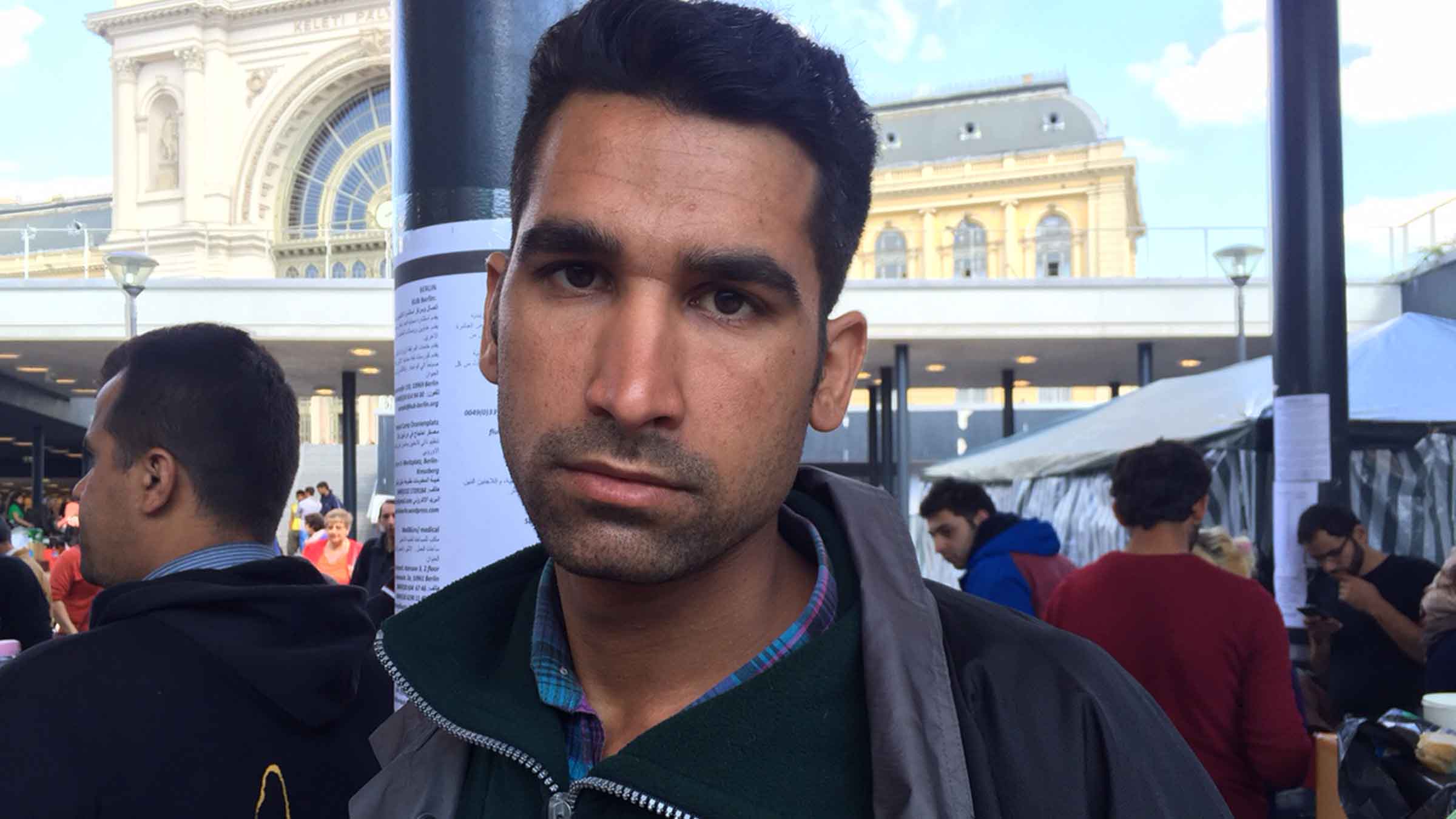
Mohammad Rezayee photographed at Keleti train station in Budapest, Hungary. (Ahmad Fawad Lami/VOA)
- Age:
- 24
- Originally from:
- Herat
- Companion:
- Wife
- Route:
- Iran → Turkey → Greece → Bulgaria → Serbia → Hungary
- Destination:
- Germany
- Paid Smugglers:
- $4,500
My parents emigrated from Herat to Iran 20 years ago when the Taliban took power in Afghanistan.
Life in Iran was tough; Afghans are not treated well there. I couldn’t get a good job. For all these reasons, we decided to leave Iran and come to Europe.
My wife and I left Iran a couple months ago. We made it to Greece and there we paid 4,000 euros to an Afghan smuggler to take my wife to Germany. Now my wife is in Germany. That was all the money I had. I couldn’t afford paying for both of us so I sent my wife and decided to take the land route which is cheaper. I worry whether the Austrian government will fingerprint me and I won’t be able to join my wife in Germany. I hope to join her as soon as I can. Then whatever European country they want to send us, we will be happy. I am in contact with her, she is losing patience and asking me all the time, “When are you going to get here?”
Bahram Ghafori
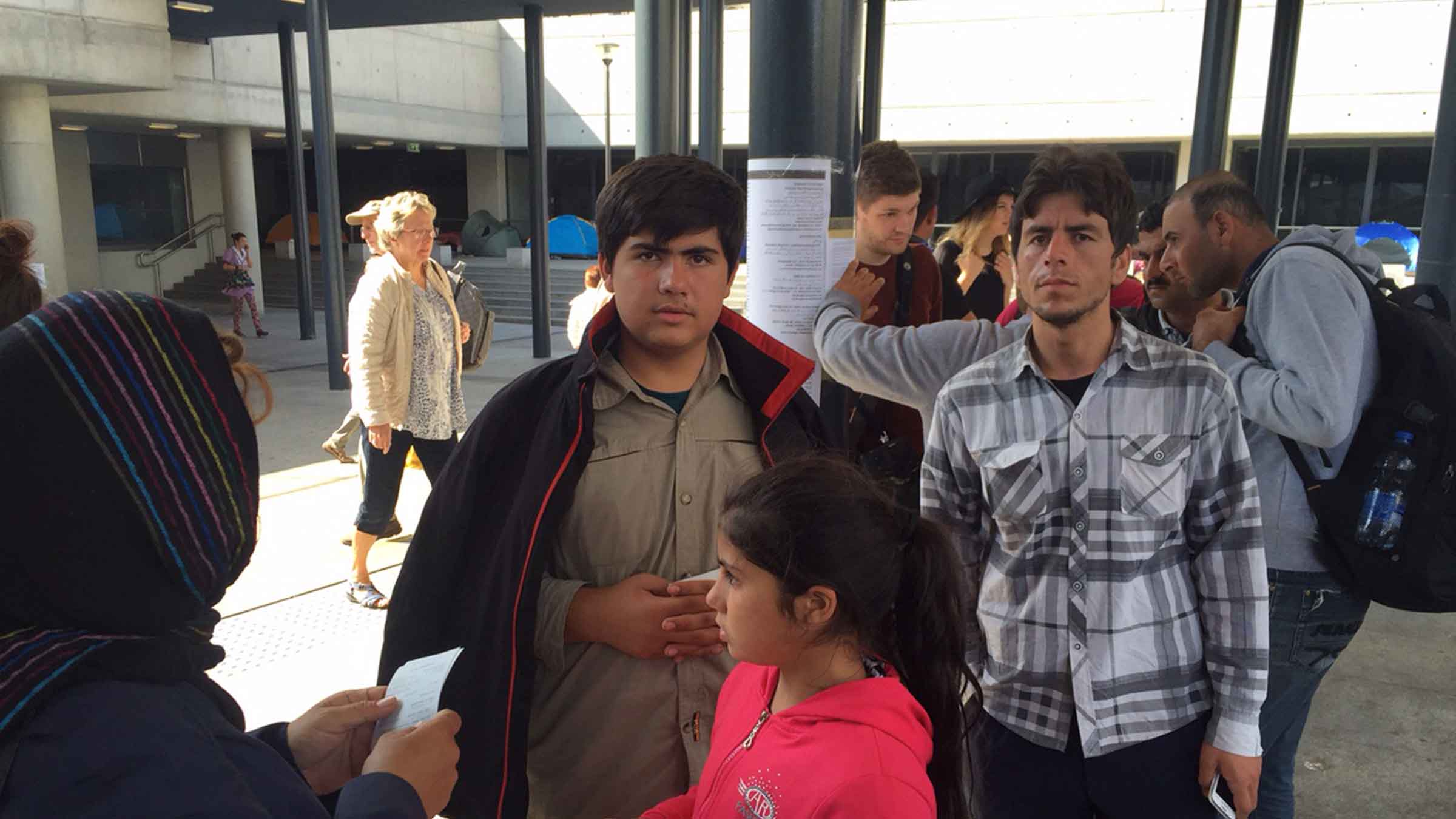
Bahram Ghafori (on the right), photographed at Keleti train station in Budapest, Hungary. (Ahmad Fawad Lami/VOA)
- Age:
- 23
- Originally from:
- Herat
- Companion:
- Aunt, three cousins
- Route:
- Iran → Turkey → Greece → Macedonia → Serbia → Hungary
- Destination:
- Germany
- Paid Smugglers:
- $10,000
We left Herat two months ago and traveled to Iran. From Iran, we went to Turkey, Greece, Macedonia, Serbia and finally Budapest. So far, we’ve have spent $10,000.
We didn’t feel safe in Herat. Security was getting worse, and on top of the Taliban’s attacks, kidnappings were rising.
The most dangerous and horrific part of our journey was when we were crossing the sea to Greece. The smugglers put 50 to 55 people in an inflatable boat with capacity for 10. We were wandering in waters for one and a half hours until we were rescued by Greek police. The weather was windy and we were scared to death.
Most Afghans hire Afghan smugglers but we hired an Iranian smuggler. After entering Greece, we continued our journey on foot in a group of 15 people. We walked for hours and hours and sometimes during the night. It was freezing, especially in mountainous terrain. We’ve been stranded in Hungary but a local Afghan volunteer gave us train tickets and we’re going to Austria. Our destination is Germany.
Sardaar
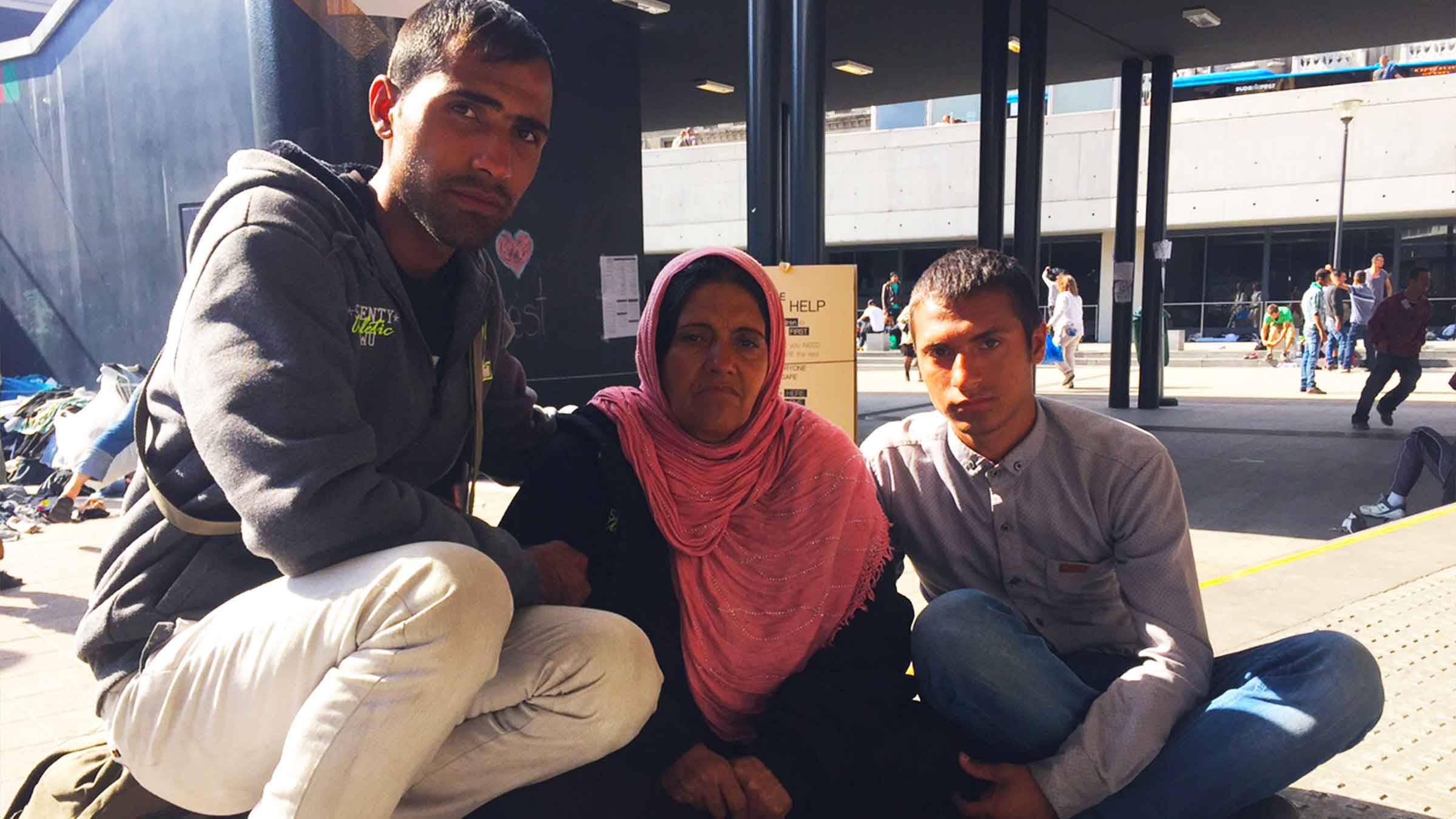
Sardaar (on the left), his mother Shahnaz and brother Sohrab photographed at Keleti train station in Budapest, Hungary. (Ahmad Fawad Lami/VOA)
- Age:
- 23
- Originally from:
- Kalakan district, Kabul
- Companion:
- Mother (56), brother (15)
- Route:
- Iran → Turkey → Greece → Macedonia → Serbia → Hungary
- Destination:
- Germany
- Paid Smugglers:
- $1,700
I attended Amir Habibullah Kalakani High school in Kalakan (north of Kabul), but dropped out of fifth grade to work in a vineyard and a carpentry shop. My younger brother, Sohrab, is in fifth grade and dreams of studying in Europe one day.
My sister is married to an Afghan in Hamburg, where they own a restaurant. A few months ago, they sent us money to come to Europe, but it wasn’t enough to pay a smuggler, so we decided to travel on our own. We only paid a smuggler to cross to a Greek island, and we paid him 1,500 euros.
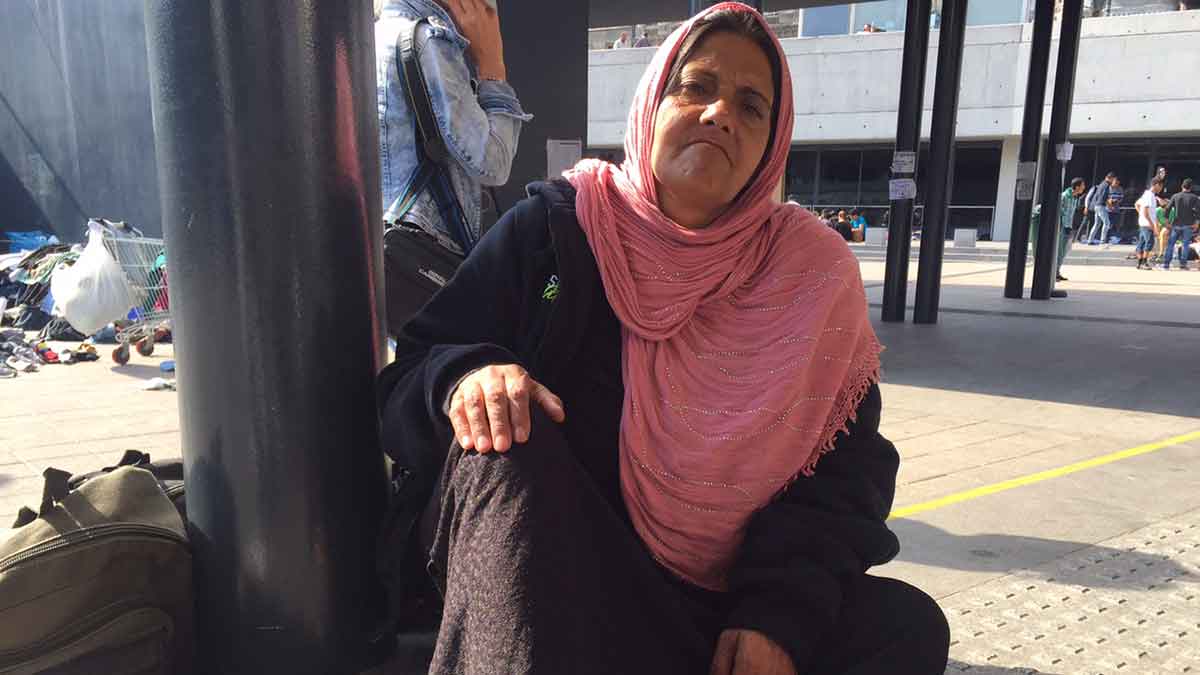
Sardaar’s mother, Shahnaz
We left Kabul one-and-a-half months ago and we traveled via Iran, Turkey, Greece, Macedonia, Serbia, and then Hungary; we are now here in Budapest awaiting the train to Vienna. We took the Greek route, because we’d heard the Bulgaria route is very dangerous and has more [forests] and, on top of that, Bulgarian police are cruel.
We walked and walked, and in some places we were taking the train and busses. We were following Arabs and asked them for help sometimes. We also used GPS. Today everything is computerized. I was looking at the map for highways, borders and cities. My mother fell ill in Greece and was hospitalized for six days. Now she’s suffering pain in her legs, saying: “I feel dead, I cannot move anymore.”
Aman Faqiri
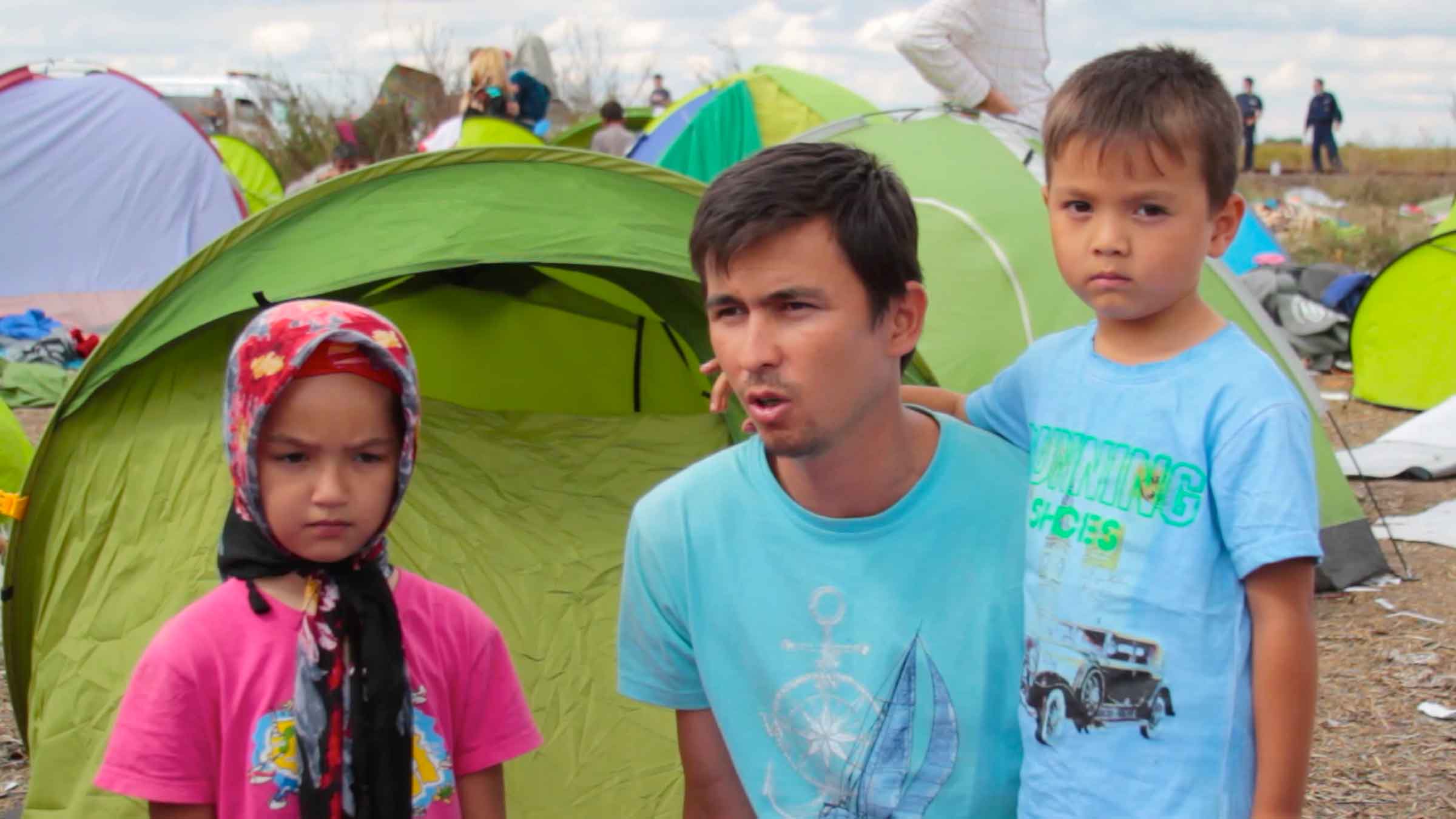
Aman Faqiri photographed at Roszke, Hungary. (Fahim Hoshang/VOA)
- Age:
- 32
- Originally from:
- Unknown
- Companion:
- Wife, son (5), daughter (8)
- Route:
- Iran → Turkey → Greece → Macedonia → Serbia → Hungary
- Destination:
- Unknown
- Paid Smugglers:
- $3,000
We took the Greece route. We decided to travel on our own and use internet and phone GPS to find our way without getting help from smugglers. We joined a group of Arabs along the way and followed them. My kids used to play with their kids along the way.
At one point, we paid $3,000 to the Arabs to help us cross the sea. At one point, we had to walk 70 kilometers in Greece. It was very hard. We crossed the Serbian-Hungarian border and spent two nights in the cornfields near the border. The Hungarian police were nearby. It was very cold. The kids were shivering. The situation was grave. Still, I know this much that since we are out of Afghanistan: We are comfortable now, because my children are safe. There are no suicide attacks.
Reza Mosazada
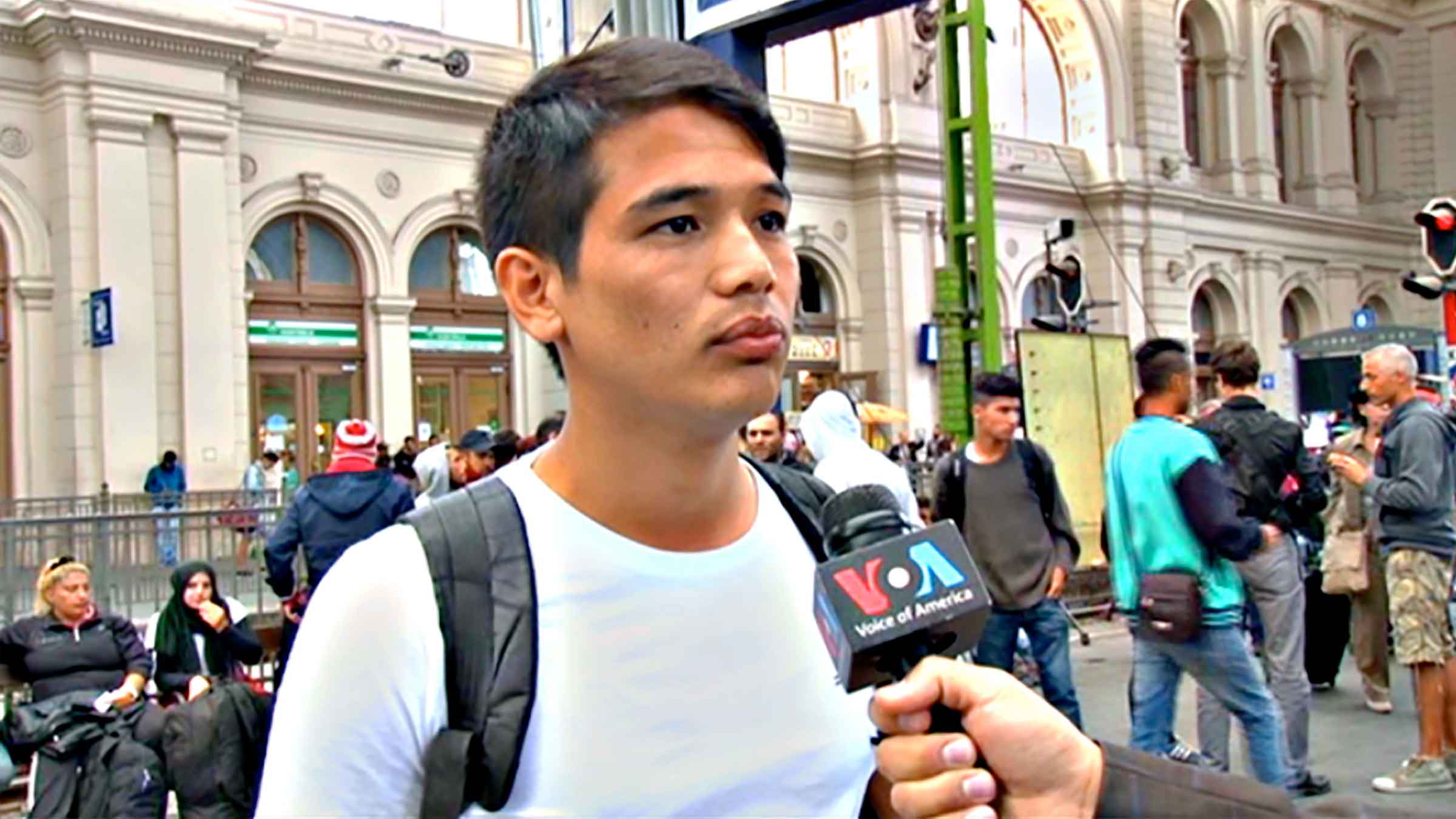
Reza Mosazada photographed at Keleti train station. (Fahim Hoshang/VOA)
- Age:
- 20
- Originally from:
- Unknown
- Companion:
- None
- Route:
- Iran → Turkey → Greece → Macedonia → Serbia → Hungary
- Destination:
- Unknown
- Paid Smugglers:
- $226, for one leg of the journey
I spent two months on the road. I took the Turkey and Greece route. The worst part was when we were drafted between water for nine hours and our boat engine broke down. The smuggler ordered one of the migrants to steer the boat even though he didn’t know how to sail. The man didn’t know the route. The boat had room for 15 people, but the smuggler put at least 50 people in it. We faced [rough seas] and our boat got flooded. We had to turn back. The smuggler beat up a migrant, replaced the engine, and sent us again to sea. There were 3 or 4 families among us too.
Next time, we again spent almost 9 hours at sea. Finally, some fishing boats came and called the Turkish police and we were rescued.
When we got to Belgrade, we bought tickets and came to the Hungarian border. Serbian police told us: keep going on the rail tracks, you will meet Hungarian police!
We didn’t want to be fingerprinted by Hungarian police. There were six of us and there were many police on the border. We rerouted and avoided police, walked through forests for almost 12 hours until we reached a highway. There, we paid 200 euros each to get to Budapest.
Naweed Kareemi

Naweed Kareemi, photographed at Keleti train station in Budapest, Hungary. (Fahim Hoshang/VOA)
- Age:
- 24
- Originally from:
- Kunduz
- Companion:
- None
- Route:
- Iran → Turkey → Greece → Bulgaria → Serbia → Hungary
- Destination:
- Switzerland
- Paid Smugglers:
- $1,000, for one leg of the journey
I moved to Turkey two years ago. I worked hard to save money for my journey to Europe. The first time I tried to get to Europe, my friends and I were lost at sea for seven hours. The second time we tried, we had to walk through forests for seven days. This time, we spent only two hours at sea, but I was originally told that the duration will be only 45 minutes.
A month ago, when we got to Greece, we were taken to an island. We paid smuggler $1,000 each just to get us to Greece. I want to go to Switzerland, because one of my friends lives there he recommended it to me. I hope they let me go there and don’t take my fingerprints in Vienna.
Fatima Mohammadi
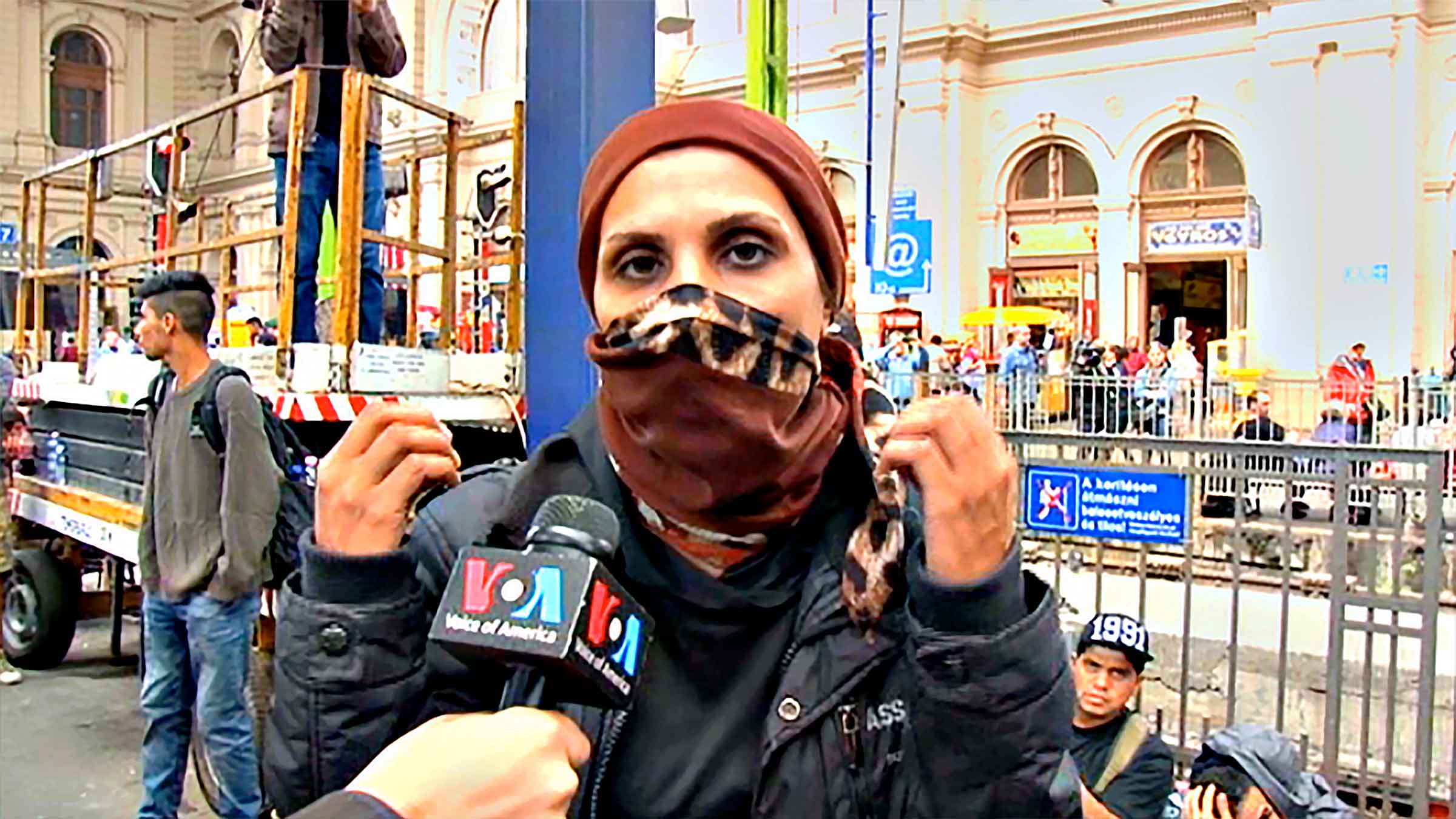
Fatima Mohammadi photographed at Keleti train station in Budapest, Hungary. (Fahim Hoshang/VOA)
- Age:
- 35
- Originally from:
- Herat
- Companion:
- Husband
- Route:
- Iran → Turkey → Bulgaria → Serbia → Hungary
- Destination:
- Unknown
- Paid Smugglers:
- Unknown
I came to Hungary from Iran but regret making the trip. I am originally Afghan from Herat, but I lived my whole life in Iran. I want to go back, I don’t want Europe. From the first day we departed, we made a mistake to hire an Afghan smuggler. He was with his wife but flirting with women. I beg you, please don’t hire Afghani smugglers, don’t bring problems on yourself. We faced thousands of problems, our legs and feet are injured. They have only focused on Arab ethnicity, they only care about Arabs. Afghans are not important for the UN at all.
Fawad Ahmad Hewad
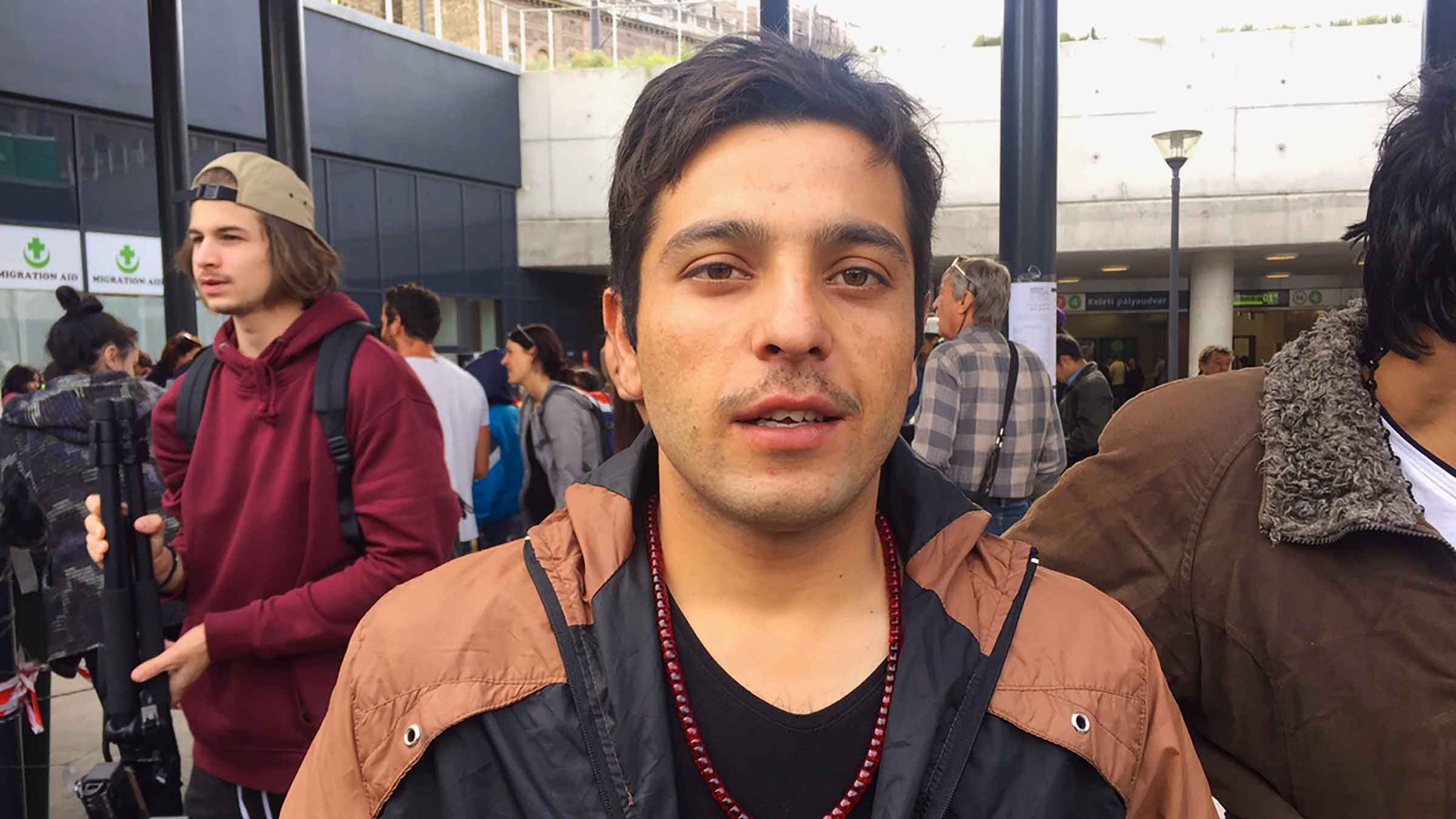
Fawad Ahmad Hewad, photographed at Keleti train station in Budapest, Hungary. (Ahmad Fawad Lami/VOA)
- Age:
- 23
- Originally from:
- Kabul
- Companion:
- None
- Route:
- Iran → Turkey → Bulgaria → Serbia → Hungary
- Destination:
- Unknown
- Paid Smugglers:
- Unknown
I was a student at the American University of Afghanistan. We lived in Dasht-e-Saqawa, close to Kabul and Logar. The Taliban were making problems for us. I was going back and forth to our home in Dasht-e-Saqawa and the Taliban were threatening me. A couple of months ago, when we entered Iran, we were facing death every second. There were 30 or 35 of us in a Datsun pickup truck and we were all jammed in the back of the truck sitting on our knees. The car was driving fast. The Iranian army fired on us.
Two of my traveling companions died and three were injured. I escaped.
Of all the countries I traveled through, the most dangerous were Iran and Bulgaria. Others were good. I walked through forests for three days and nights until I reached Sofia. If the police arrest you there, they put you in jail for one to two months and take your fingerprints, too.
Among smugglers and migrants, every [attempt] to cross a border is called “a game.” I was arrested during the first game but succeeded during the second.
Credits
Reporting by Ahmad Fawad Lami
Edited by Masood Farivar and Pete Cobus
Photos and Video by Ahmad Fawad Lami and Fahim Hoshang
Web Design and Development by Stephen Mekosh and Dino Beslagic

Comments